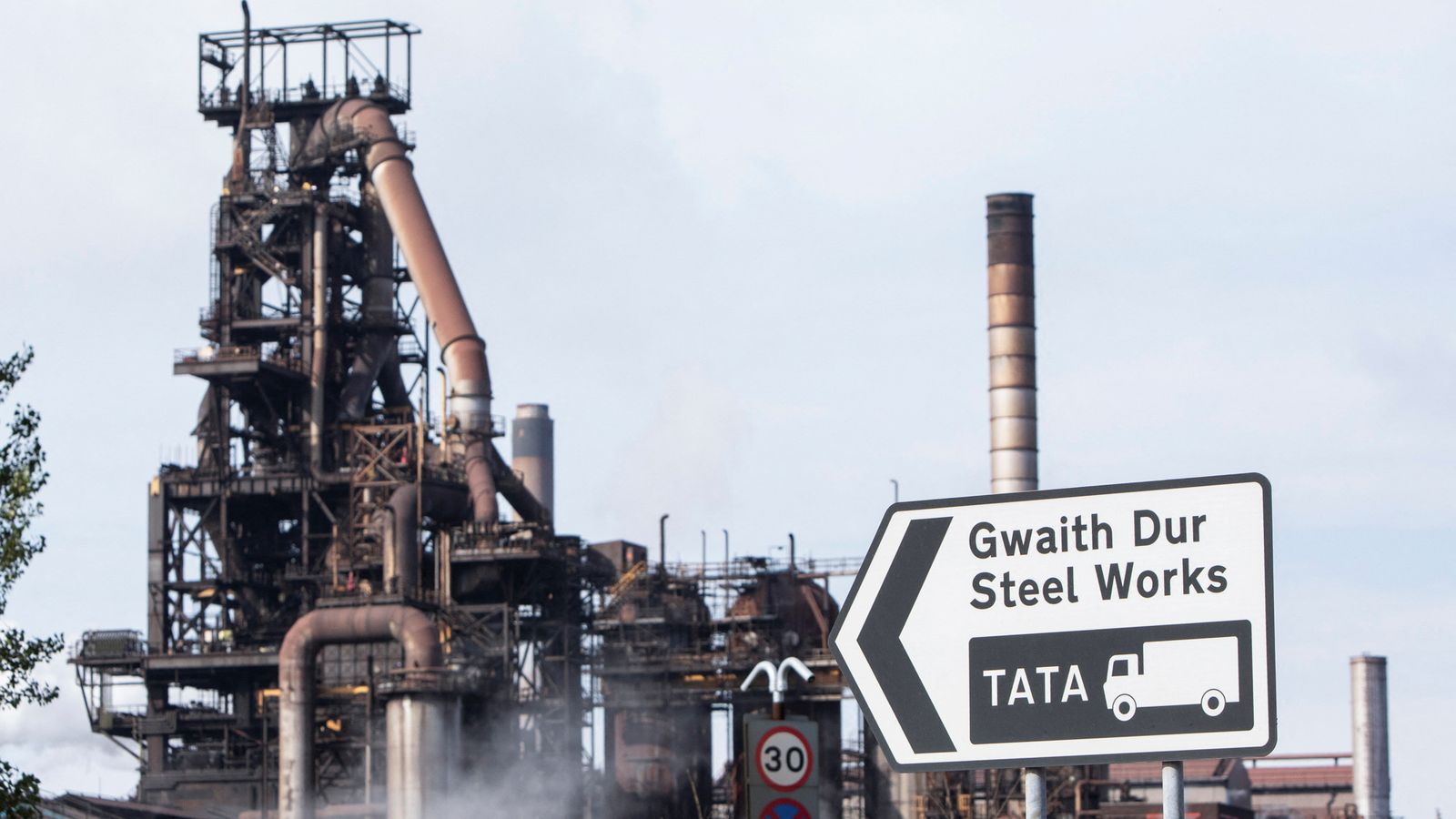More than 3,000 jobs are to be axed at the country’s biggest steelworks, it has been confirmed.
Of the losses 2,800 will be in the next 18 months. The timeline for a further 300 jobs are to go but no timeline has been given for when.
It comes as Tata Steel announced it was to press ahead with plans to close blast furnaces at the Port Talbot plant in South Wales.
The steel giant in September confirmed details reported by Sky News that it had secured £500m of taxpayer cash to support the site’s transition to cheaper, greener steel production to cut emissions and stem financial losses.
Job cuts had been expected as part of the deal though 5,000 UK staff are due to remain within the wider UK operations following the agreement with the government.
The redundancies, to be completed by March next year, will see three-quarters of the 4,000 staff on site put out of work.
The Port Talbot workforce currently accounts for 12% of the coastal town’s entire population and many had expressed concerns for their families’ futures when it emerged that big job losses were expected.
Stephen Kinnock, Labour MP for Aberavon, home of the Port Talbot plant, told Sky News: “Steel is the beating heart of manufacturing and of our entire infrastructure and, of course, of our national security.
“Do we really want to be a country, given the dangerous and turbulent world in which we live, that isn’t able to produce its own steel?
“We are very proud of what the Port Talbot steelworks means for Wales and for the entire United Kingdom and we feel passionately here.
“There isn’t a single household in my Aberavon constituency that isn’t connected to the steelworks in some way, and the impact would be utterly devastating.”
Unions met the company on Thursday after presenting alternative proposals aimed at saving jobs but sources said Tata rejected them.
The India-based company will replace the two blast furnaces at the plant with electric arc furnaces under the plan to reduce emissions and costs.
Read more:
The UK needs an industrial strategy – not just piecemeal funding
Steel rescue package could be ‘missed opportunity’
Unions are expected to consult their members on how to respond to the job losses, with industrial action possible.
The viability of domestic steel production has been hampered over many years by high UK energy prices, which have damaged competitiveness.
As a result, the GMB union has claimed up to 2,000 jobs at British Steel’s Scunthorpe plant are also under imminent threat.
The Chinese-owned company cut 7% of its workforce in February.
That was despite continuing government talks with Jingye Group about potential taxpayer aid at the time.
